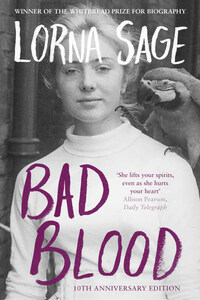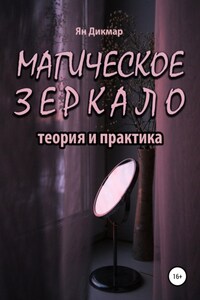When Bad Blood was published a decade ago it made an unlikely star of its author, the 57-year-old academic Lorna Sage. Sage was already well known to the small but important pool of readers who followed her literary criticism in both newspapers and academic publications, but this was something else entirely. Her account of growing up in a grubby Welsh vicarage after the Second World War, getting pregnant at 16, and claiming the education, career and life which no one â family, school or culture â thought should be hers became the surprise hit of late 2000. The book sold hundreds of thousands of copies around the world, won the Whitbread Award for Biography together with the PEN/Ackerley Prize for autobiography and made Sage famous to people who would otherwise never have heard of her. In fact it was all a bit of a fairy tale â ironic when you consider that one of Bad Bloodâs chief concerns is to cast a sceptical eye over the stories handed to us in childhood to steer by, regardless of whether they fit or hobble us horribly.
And then, just as the excitement reached a crescendo in the midwinter of 2000â2001, this late-to-the-party princess was gone. She had been felled by a complicated collision of asthma, emphysema and a fierce smoking habit, which made her cruelly short of breath. It had, though, also granted her the privileges of the chronic insomniac to read through the night, a habit begun in her childhood when she had been made restless by the face-ache of severe sinusitis.
Sage had been named after the heroine of one of her clergyman grandfatherâs favourite books, R. D. Blackmoreâs Lorna Doone, and if her life proves anything, it is that reading can make things happen. Not just in the old clichéd way â scholarship girl grafts her way to a life her parents could never have provided â but in the sense of giving Sage a keen sense of how stories work to shape our knowledge of self and the world. And how, most crucially of all, if a particular story doesnât make sense, then you must simply make up a better.
The irony of the timing of her death would not have been lost on Lorna Sage. Unusually for a literary academic steeped in the critical theories of the Seventies and Eighties that declared the author dead, she was fascinated by the connections between writersâ lives and their works. And as an expert reader of memoir she would have known that you seldom get the neat double ending of text and life that had so spectacularly occurred with Bad Blood. As a result the book remains eerily intact, because there is no author on hand to expand, provoke or riff on it. We are left, as readers, an extraordinary freedom to make of it whatever we will.
Sage had been working on a memoir about her early life for some time, but it was the discovery of her grandfatherâs diaries in the 1990s that suddenly gave shape to the book: it came out quickly, and in such a finished form that virtually no editing was required. These were the diaries, of course, which her grandmother had used to blackmail Revd Meredith-Morris into handing over most of his stipend. Full of details of his joyless philandering, the diaries would have been highly damaging if theyâd got into the Bishopâs hands, which was exactly where Sageâs grandmother was threatening to put them unless âthe old devilâ, as she called him, paid up and paid regularly.
Described like this, Bad Blood sounds like a parochial book, in all senses. Yet when it appeared in the early autumn of 2000 it was a national and international hit, as if people had been waiting for it without quite knowing why. Perhaps it was to do with the fact that the world was now embarking on a new millennium. The mid-twentieth century with its watershed war and the unprecedented social changes that followed was about to be left behind for good. Very soon all the detail from that time â ration books, the eleven-plus, council houses, the nascent NHS, rural buses â would slip from living memory. Here was a last chance to see that world at first hand from someone whose intellect was briskly contemporary â mostly, indeed, ahead of the pack â yet whose life and mind had been forged in another age entirely.
Bad Blood, though, is much more than a social history of the war baby generation (Sage was born in January 1943 while her father was still away fighting). It is instead a story of absolute singularity involving one of the great tragi-comic characters of contemporary English literature, the Revd Meredith-Morris of St Chadâs, Hanmer, a rural parish situated in that thick finger of Wales which crooks oddly into Shropshire. The Old Devil is there for less than a hundred pages but he manages to dominate the whole book, with his great gusts of unhappiness, his boozy self-pity and of course his random lusts, which include trysts with the district nurse and his teenage daughterâs best friend. It is the Revd Meredith-Morrisâs








